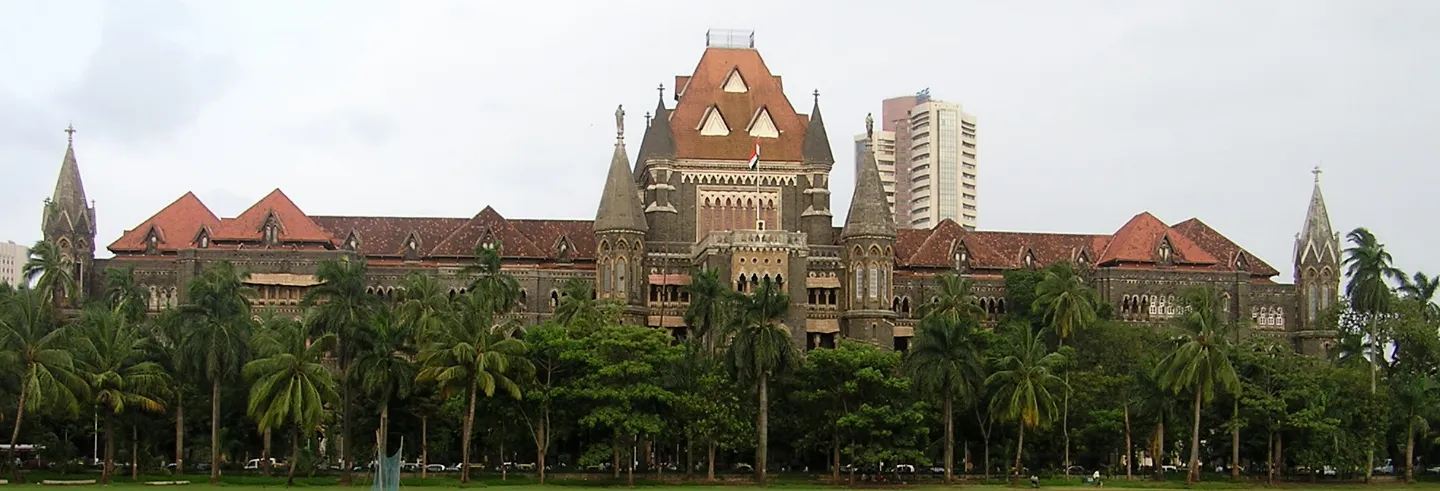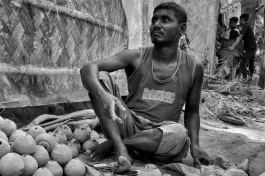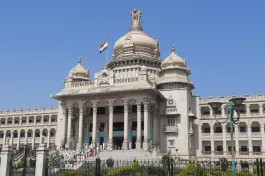On 14 June, six former judges of the Supreme Court and different high courts, along with six senior advocates, urged the Supreme Court to take suo motu action on the recent cases of bulldozing and demolition of houses of protestors against the remarks about the Prophet made by spokespersons of the Bharatiya Janata Party.
In the appeal, directly addressing state actions in Uttar Pradesh, the letter states:
[I]n its role as custodian of the Constitution, we ... urge the Hon’ble Supreme Court to take immediate suo motu action to arrest the deteriorating law and order situation in Uttar Pradesh, specifically involving the high-handedness of the police and state authorities, and the brutal clampdown on the fundamental rights of citizens... We hope and trust the Supreme Court will rise to the occasion and not let the citizens and the Constitution down at this critical juncture.
This may seem like an unprecedented appeal coming from legal luminaries, but action by the Supreme Court is well within the judicial realm, as the higher judiciary in India has the mandate to initiate proceedings on its own, without being petitioned by a claimant or party.
There is a third way in which the wronged can get justice and solace if the courts choose to do so of their own accord; this is through suo motu cognizance.
The conventional manner of the working of the higher judiciary has been that aggrieved, wronged, injured individuals or groups file petitions and judicial processes are set in motion by a listing of the cases. Another way of approaching the courts is when in certain contexts, any individual or group, including deprived sections of the society, can attain legal representation without actually filing petitions. Petitions on their behalf could be filed by other individuals, activists, or non-government organisations.
In the mid-1970s, the judiciary in India, particularly the Supreme Court, adopted this practice, and there arose Public Interest Litigation (a terminology that has been borrowed from American jurisprudence). The earliest champions of this cause in the Supreme Court were, in particular, Justices V.R. Krishna Iyer and P.N. Bhagwati who from the beginning of the 1980s took up such cases even if someone had sent a 'petition' as a grievance on a postcard or via telegram.
There is a third way in which the wronged can get justice and solace if the courts choose to do so of their own accord, this is through suo motu cognizance. The Constitution of India provides the mandate and scope for direct judicial intervention under Articles 32 and 226 to the Supreme Court and the high courts, respectively, to step in on their own, issue directions, orders or writs for the enforcement of Fundamental Rights, without any petitions or PILs being filed.
This can happen when the attention of the judiciary gets drawn by/to an external source, or based on what comes to the court’s notice from a news report or by any other means (now increasingly through the social and electronic media). This is known as suo motu action by the court (suo motu in Latin means “on its own motion”). This indeed is far more proactive and an extreme form of judicial activism compared to Public Interest Litigation.
The executive (the legislature too), at times, does get peeved that the courts can then indulge in what gets designated as 'judicial overreach' or 'judicial adventurism'. But, overall, from the civil society’s point of view, suo motu judicial interventions are highly desirable and a welcome change from the usual situations where the civil society in general was (and is still) made to run from pillar to post in seeking justice.
Suo motu cognizance can be taken up by the Supreme Court or high courts in the following matters: (1) contempt of court, (2) reopening of old cases, (3) probing new cases.
One of the most recent suo motu initiatives of the Supreme Court was during the first wave of the Covid-19 pandemic in 2020. Here, the court dealt with nine cases suo motu on the availability and distribution of essential supplies. This suo moto action continued in 2021.
The Supreme Court has also taken suo motu action in death penalty cases by giving directions to courts all over the country in the way they have to deal with death sentences. The Supreme Court said that “it will examine and institutionalise a mechanism involved in collection of information and other data points to decide the award of sentence in death penalty cases. A three judge bench led by Justice U.U. Lalit sought assistance from Attorney General K.K. Venugopal, and also issued a notice to the National Legal Services Authority (NALSA)”.
From 1990 to 2021 the Supreme Court has initiated a total of 46 suo motu cases. The sources of notice on the basis of which the court took suo motu cognizance and initiated the cases are: media reports (12), topic of national conversation (10), by letter (7), during proceedings in another matter (5), converted from an application (4), unclear (likely media reports, 3), group of lawyers raised matter (2), given files in person (1), social media post (1), solicitor general's mentioning (1).
Besides, there are ‘particular incidents’ which refer to “issues taken up with reference to an incident involving a fixed number of people”. The fire that killed 25 chained asylum inmates on 6 August 2001 in Erwadi at the Moideen Badusha Mental Home in Tamil Nadu is an example of a particular incident.
Given that the Supreme Court as well as the high courts have such powers, one wonders why the higher judiciary does not use suo motu powers and initiate action…
It has been argued that “the ambit or scope of suo motu action of the courts has not been defined in any Indian statue or in any act, therefore, the courts take suo motu cognizance where it deems fit. There are no prescribed rules or situations where the courts can take suo motu cognizance.” Hence the 14 June appeal by the legal luminaries is highly relevant given the extreme actions being taken by certain states on dealing with protests.
Besides the suo motu actions of the Supreme Court, high courts too have taken up, cases suo motu. One such recent action was on 4 May when a Division Bench of the Kerala High Court comprising Justices Devan Ramachandran and P.G. Ajithkumar, registered a suo motu case in connection with the food poisoning incidents in Kasaragod where a student died and about 30 students were hospitalised after eating shawarma. On 6 May, a division bench made the oral observation that the authorities concerned should have a continuous monitoring mechanism on the safety of food sold in the state.
Given that the Supreme Court as well as the high courts have such powers, one wonders why the higher judiciary does not use suo motu powers and initiate action in incidents/episodes that have been causing havoc and undermining the democratic processes in India. It is saddening that unbridled violence is perpetrated against vulnerable groups that have been discriminated against and targeted for being just the "other".
A plea by civil society, besides that from former judges and senior advocates, can be that the higher judiciary has to be more proactive and intervene suo motu in the increasing number of incidents that have been violently affecting not only the social and communal fabric but also, somewhat tangentially, the very economic well-being of the country itself.
Let us look forward to the days when the Supreme Court and high courts carry out their mandate, and take suo motu cognizance more often on many of the ugly acts that are currently endangering the country.
M.A. Kalam, a social anthropologist, is a visiting professor at Centre for Economic and Social Studies, Hyderabad.









